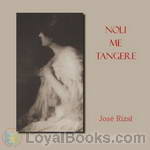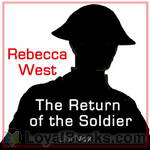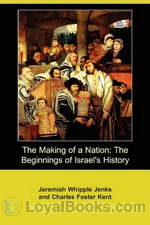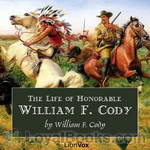|
Books Should Be Free Loyal Books Free Public Domain Audiobooks & eBook Downloads |
|
|
Books Should Be Free Loyal Books Free Public Domain Audiobooks & eBook Downloads |
|
Top Authors |
|---|
|
Book type:
Sort by:
|
By: Daisy Ashford (1881-1972) | |
|---|---|
 Daisy Ashford: Her Book
Daisy Ashford: Her Book
| |
By: Jacques Futrelle (1875-1912) | |
|---|---|
 Elusive Isabel
Elusive Isabel
Elusive Isabel is a novel by Jacques Futrelle (April 9, 1875 – April 15, 1912) first published in 1909. Set in Washington, D.C., it is a spy novel about an international conspiracy of the “Latin” countries against the English-speaking world with the aim to take over world control. | |
 The Leak
The Leak
| |
By: P. R. Kincaid | |
|---|---|
 The Arabian Art of Taming and Training Wild and Vicious Horses
The Arabian Art of Taming and Training Wild and Vicious Horses
Back in the day before automobiles, a good horse trainer and veterinarian was the equivalent of “Mr Goodwrench”. A badly behaving or unhealthy equine was equivalent to breaking down on the highway or running out of gas on a lonely stretch of highway somewhere in Utah. My sources tell me that most of the training methods are ok, but stay away from the medical tips unless you are prepared to become the poster boy or girl for the local SPCA. Listen with tongue in cheek, and check with a professional before attempting any of these techniques on a real animal. | |
By: José Rizal (1861-1896) | |
|---|---|
 Noli Me Tangere (The Social Cancer)
Noli Me Tangere (The Social Cancer)
Noli Me Tangere (Latin for Touch Me Not) is a novel by the National Hero of the Philippines, Dr. José Rizal. It was originally written in Spanish, and first published in Germany in 1887. Noli Me Tangere exposed the corruption and abuse of the Spanish government and clergy towards the Philippine people and the ills of the Philippine society. This novel, and its sequel El Filibusterismo were banned in many parts of the Islands. Rizal was later arrested for inciting rebellion, based largely on his writings, and was excuted in Manila... | |
 The Philippines A Century Hence
The Philippines A Century Hence
| |
 The Indolence of the Filipino
The Indolence of the Filipino
| |
 Friars and Filipinos An Abridged Translation of Dr. Jose Rizal's Tagalog Novel, 'Noli Me Tangere.'
Friars and Filipinos An Abridged Translation of Dr. Jose Rizal's Tagalog Novel, 'Noli Me Tangere.'
| |
 An Eagle Flight A Filipino Novel Adapted from Noli Me Tangere
An Eagle Flight A Filipino Novel Adapted from Noli Me Tangere
| |
By: Edwin F. Benson | |
|---|---|
 Life in a Mediaeval City, Illustrated by York in the XVth Century
Life in a Mediaeval City, Illustrated by York in the XVth Century
A short and gentle overview of mediaeval life in a large city. It lightly covers the class structure of society, local government, guilds, pageantry and punishment. The author has an easy, rhythmic style which leaves the reader wanting to find out more. | |
By: Carley Dawson (1910-1977) | |
|---|---|
 Mr Wicker's Window
Mr Wicker's Window
When Christopher Mason walked into Mr. Wicker's antique shop, he had no idea he would soon be embarking on a marvellous journey to China to find a wonderful tree made of jewels. He had no idea that Mr. Wicker was a magician and could travel through time. And that the tree was sought by others, not least among them the murderous Claggett Chew, a merchant in port and a pirate on the high seas, who also had knowledge of magic. But before Chris succeeded in quest, he would know of all these things and more... | |
By: Rebecca West (1892-1983) | |
|---|---|
 The Return of the Soldier
The Return of the Soldier
In 1916 on an isolated country estate just outside London, Captain Chris Baldry, a shell-shocked captain suffering from amnesia, makes a bittersweet homecoming to the three women who have helped shape his life. Will the devoted wife he can no longer recollect, the favorite cousin he remembers only as a childhood friend, and the poor innkeeper’s daughter he once courted leave Chris to languish in a safe, dreamy past–or will they help him recover his memory so that he can return to the front? The answer is revealed through a heart-wrenching, unexpected sacrifice. | |
 The Judge
The Judge
| |
By: Joris-Karl Huysmans | |
|---|---|
 Against the Grain, or Against Nature
Against the Grain, or Against Nature
“THE BOOK THAT DORIAN GRAY LOVED AND THAT INSPIRED OSCAR WILDE”. Such is the enticing epigraph of one early translation of Huysmans’ cult novel of 1884, which is also routinely called the Bible of Decadence. Accurate descriptions, both, of this bizarre masterpiece which has reverberated ever since through high and popular culture. “Against Nature” (or in this version “Against The Grain”) explores to the furthest limit the life of the world-rejecting aesthete living a reclusive existence devoted entirely to artificial paradises of his own devising... | |
By: Charles Foster Kent | |
|---|---|
 The Making of a Nation: The Beginnings of Israel's History
The Making of a Nation: The Beginnings of Israel's History
Charles Foster Kent was one of the premier scholars in Jewish Studies at the turn of the century. He was particularly well-known for his comparisons of early Christianity to its Jewish roots. He also wrote several distinguished histories of Israel, the Jewish people, Torah studies, and the development of oral Torah. | |
 The Makers and Teachers of Judaism
The Makers and Teachers of Judaism
| |
 The Origin and Permanent Value of the Old Testament
The Origin and Permanent Value of the Old Testament
| |
By: Albert Payson Terhune (1872-1942) | |
|---|---|
 His Dog
His Dog
Albert Payson Terhune, perhaps best known for his book Lad, a Dog (later turned into a popular movie), was also a breeder of collies and a journalist. Some of his collie lines survive to this day. His Dog is a story about Link Ferris who finds an injured dog on his way home one evening. Knowing nothing about dogs, Link nurses the dog back to health and the two form a bond such as only can be formed between human and canine. Unable to locate the collie’s owner, Link christens his dog ‘Chum’ who becomes invaluable in tending to the daily needs of his meager farm... | |
 Further Adventures of Lad
Further Adventures of Lad
| |
By: Albert Payson Terhune (1872-1942) | |
|---|---|
 Bruce
Bruce
Albert Payson Terhune was a journalist but is probably best known as a breeder of dogs, in particular collies at his Sunnybank Kennels. Bruce charts the story of an unwanted puppy who becomes loved by the mistress of the family. He then becomes enlisted as a carrier dog in World War 1, completing heroic tasks and coming home a war hero | |
By: Albert Payson Terhune (1872-1942) | |
|---|---|
 Black Caesar's Clan : a Florida Mystery Story
Black Caesar's Clan : a Florida Mystery Story
| |
By: William F. Cody | |
|---|---|
 The Life of Honorable William F. Cody
The Life of Honorable William F. Cody
The life and adventures of Honorable William F. Cody–Buffalo Bill–as told by himself, make up a narrative which reads more like romance than reality, and which in many respects will prove a valuable contribution to the records of our Western frontier history. While no literary excellence is claimed for the narrative, it has the greater merit of being truthful, and is verified in such a manner that no one can doubt its veracity. The frequent reference to such military men as Generals Sheridan, Carr, Merritt, Crook, Terry, Colonel Royal, and other officers under whom Mr... | |
By: Mack Reynolds (1917-1983) | |
|---|---|
 Mercenary
Mercenary
Every status-quo-caste society in history has left open two roads to rise above your caste: The Priest and The Warrior. But in a society of TV and tranquilizers--the Warrior acquires a strange new meaning... (Introduction from the Gutenberg text) | |
 Ultima Thule
Ultima Thule
Ronny Bronston has dreamed all his life of getting a United Planets job that would take him off-world. He finally gets the opportunity when he is given a provisional assignment with Bureau of Investigation, Section G. But will he be able to complete his assignment and find the elusive Tommy Paine? | |
 Happy Ending
Happy Ending
| |
 I'm a Stranger Here Myself
I'm a Stranger Here Myself
| |
 Gun for Hire
Gun for Hire
| |
 Dogfight—1973
Dogfight—1973
| |
 Combat
Combat
| |
By: Dallas McCord Reynolds (1917-1983) | |
|---|---|
 Status Quo
Status Quo
Larry Woolford is a government agent, tasked with investigating subversive activity. He does everything an ambitious young man should do if he wants to succeed: wear the right clothes, listen to the right music, even drink vodka martinis. Then he stumbles across a conspiracy of Weirds plotting to overthow the entire existing social order. It's a race against time. Can he stop their fiendish plan, and keep America safe for shallow judgements based on status symbols? Status Quo was nominated for the 1962 Hugo Award for short fiction. | |
By: Mack Reynolds (1917-1983) | |
|---|---|
 The Common Man
The Common Man
| |
 Freedom
Freedom
| |
 Border, Breed Nor Birth
Border, Breed Nor Birth
| |
 Medal of Honor
Medal of Honor
| |
 Unborn Tomorrow
Unborn Tomorrow
| |
 Subversive
Subversive
| |
 Black Man's Burden
Black Man's Burden
| |
 Off Course
Off Course
| |
 Summit
Summit
| |
 Expediter
Expediter
| |
By: Margaret Warner Morley (1858-1923) | |
|---|---|
 The Insect Folk
The Insect Folk
Through delightful outings with her students, a teacher introduces her class to the fascinating world of insects. She encourages her students to observe and ask questions. This is a wonderful science text for young children. | |
 The Renewal of Life; How and When to Tell the Story to the Young
The Renewal of Life; How and When to Tell the Story to the Young
| |
By: Cornelia Mee | |
|---|---|
 Exercises in Knitting
Exercises in Knitting
Mrs. Mee, her husband, and her sister ran a yarn and needlework import/warehouse business in Bath, England. Her books primarily contain practical everyday items that knit up quickly with the busy homemaker in mind. At this time, published knitting “receipts” did not contain abbreviations and were laborious to use. They were, however, rich in error! Later in her career, due to circumstances of war and the resulting social stress and poverty, many of her knitting books were printed for ladies’ charitable societies, which used her knitting “receipts” to clothe the poor mill workers who were out of work due to the American Civil War and the embargo of cotton. | |
By: Adelbert von Chamisso (1781-1838) | |
|---|---|
 Peter Schlemihl
Peter Schlemihl
| |
 Peter Schlemihl
Peter Schlemihl
| |
By: Gotthold Ephraim Lessing (1729-1781) | |
|---|---|
 Miss Sara Sampson
Miss Sara Sampson
G.E. Lessing, widely regarded by students of theater as the world's first dramaturg, was also one of the first proponents of the German bourgeois tragedy. Miss Sara Sampson, in which a young woman runs off with a ne'er-do-well who is still entangled with his former mistress, was a reaction against the Voltarian verse drama popular in the eighteenth century. | |
 Nathan the Wise; a dramatic poem in five acts
Nathan the Wise; a dramatic poem in five acts
| |
 Minna Von Barnhelm
Minna Von Barnhelm
| |
By: Benjamin L. (Benjamin Leonard) D'Ooge (1860-1940) | |
|---|---|
 Latin for Beginners
Latin for Beginners
| |
By: Hendrik Conscience (1812-1883) | |
|---|---|
 The Amulet
The Amulet
| |
 The Poor Gentleman
The Poor Gentleman
| |
By: Isabella L. Bird | |
|---|---|
 The Englishwoman in America
The Englishwoman in America
Isabella Bird travels abroad in Canada and the United States in the 1850s. As an Englishwoman and a lone female, she travels as far as Chicago, Prince Edward Island, and Cincinatti. Her observations on the trials and tribulations of the journeys are astute, if formed by her place and time in history. Adventures with pickpockets, omnibuses, cholera, and rat invested hotels deter her not. (Sibella Denton) | |
By: D. H. Lawrence (1885-1930) | |
|---|---|
 Fantasia of the Unconscious
Fantasia of the Unconscious
| |
 Aaron's Rod
Aaron's Rod
Flutist Aaron Sisson is caught up in the aftermath of WWI. A lost soul, he attempts to find himself in the comfort of bar-room talk and alcohol and a woman. Moving on, he spends time with a mining executive's relatives. But he finds the family a stuffy middle-class lot, bored with each other and themselves. He leaves his wife and children and strikes out for the open road. During a playing engagement at an opera performance, he reunites with the mining executive's family. Talk is of love and war, none of it very satisfying to anyone... | |
 Lost Girl
Lost Girl
"There is no mistake about it, Alvina was a lost girl. She was cut off from everything she belonged to." In this most under-valued of his novels, Lawrence once again presents us with a young woman hemmed in by her middle-class upbringing and (like Ursula Brangwen in The Rainbow) longing for escape. Alvina Houghton's plight, however, is given a rather comic and even picaresque treatment. Losing first her mother, a perpetual invalid, and later her cross-dressing father, a woefully ineffectual small-scale entrepreneur, Alvina feels doomed to merge with the tribe of eternal spinsters who surround her in the dreary mining community of Woodhouse... | |
 The Prussian Officer
The Prussian Officer
| |
 Look! We Have Come Through!
Look! We Have Come Through!
| |
 New Poems
New Poems
| |
 Bay A Book of Poems
Bay A Book of Poems
| |
 Wintry Peacock
Wintry Peacock
| |